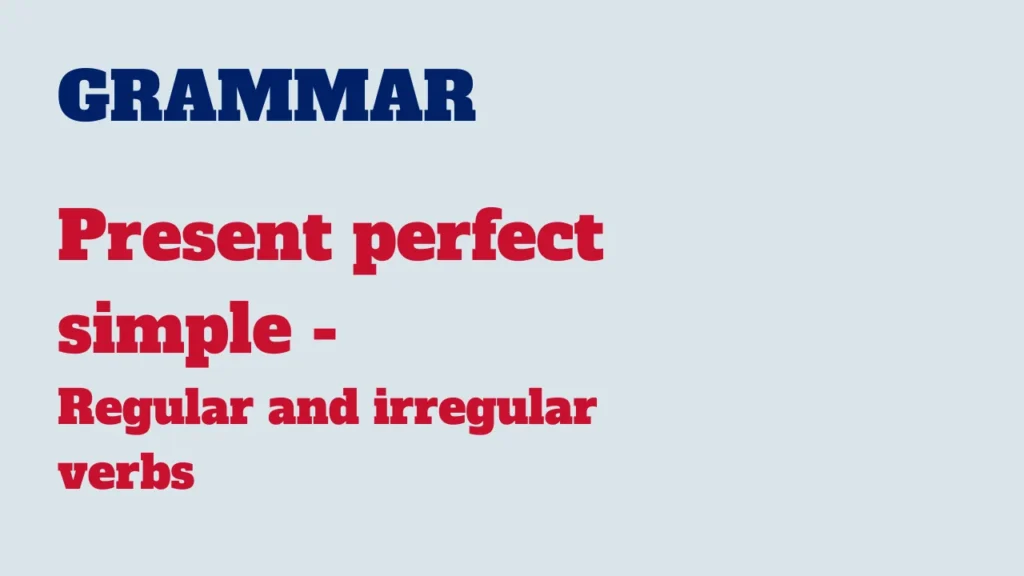The present perfect simple tense is formed by using the present tense of the auxiliary verb “have” (have/has) with the past participle of the main verb.

Let’s explore the formation of present perfect simple with both regular and irregular verbs:
Present perfect simple with regular verbs:
Structure:
[Subject] + have/has + [past participle of the regular verb]
Examples:
I have visited that museum before.
She has completed her assignment.
Present perfect simple with irregular verbs:
Structure:
[Subject] + have/has + [past participle of the irregular verb]
Examples:
They have eaten at that restaurant.
He has seen that movie.
Table: Present perfect simple
| Subject | Present Perfect Affirmative | Example |
|---|---|---|
| I | have + past participle | I have visited Paris. |
| You | have + past participle | You have finished your homework. |
| He/She/It | has + past participle | She has lived here for five years. |
| We | have + past participle | We have seen that movie before. |
| You (plural) | have + past participle | You have studied Spanish. |
| They | have + past participle | They have completed the project. |
Formation of past participle:
For regular verbs, the past participle is usually formed by adding “-ed” to the base form.
Examples:
play → played
work → worked
Irregular verbs have unique past participle forms that do not follow a consistent pattern.
Examples:
go → gone
sing → sung
Usage of present perfect simple:
Actions in an unspecified past:
Used to talk about actions or events that happened at an unspecified time in the past.
Example:
I have read that book.
Experiences in life:
Used to talk about life experiences up to the present.
Example:
She has visited many countries.
Actions with relevance to the present:
Used when the results or effects of an action are still relevant in the present.
Example:
They have lived here for five years.
Multiple actions:
Used to express the number of times an action has occurred.
Example:
We have seen that movie three times.
Common mistakes to avoid:
Incorrect: He have finished his work.
Correct: He has finished his work.
Incorrect: They has visited us last week.
Correct: They have visited us last week.
Understanding how to form and use the present perfect simple tense with both regular and irregular verbs enhances your ability to express past actions and experiences accurately. Practice using this tense in various contexts to strengthen your language skills. Happy learning!



